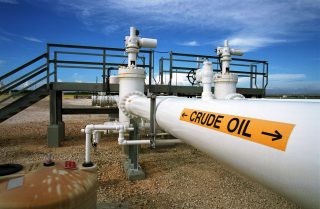Non-governmental organizations across the world have written to request that the African Development Bank reject a proposal to help fund the delayed East Africa Crude Oil Pipeline project, meant to transport oil from three oilfields being developed in Uganda to the port city of Tanga, in Tanzania.
More than 100 civil society organizations reportedly raised concerns over the project’s potentially damaging and irreparable environmental, climatic and social impact, describing the proposed pipeline as “exceptionally high-risk” in a March 19 letter to AfDB head Akinwumi Adesina.
The 1,445-kilometer pipeline, estimated at a cost of $2.5 billion, is expected to transport over 200,000 barrels a day at full production. But the project, a key component of Uganda’s bid to achieve commercial oil production and exportation, comes with a problem – if constructed, it would be the longest heated crude oil pipeline in the world.
Coming at a time when the international scientific community repeatedly warns that the world cannot absorb new fossil fuel developments if governments are to tackle the climate crisis, the EACOP has been met with stark criticism. More so, the resulting emissions from fossil fuel expansion could harm surrounding farming communities in both countries.
Other factors as highlighted by the group include corruption and human rights violations from large-scale land acquisition and compensation for loss of land and properties, as well as threats to livelihoods, biodiversity and natural habitats along the pipeline route.
“We do not consider that these concerns can be adequately mitigated,” the letter reads. “As such, we urge the bank not to proceed with financing this project, but to seek opportunities instead to finance genuine renewable infrastructure to help meet the region’s energy needs in a clean and rights-compatible manner in the decades to come.”
In addition to the AfDB request, an online petition was launched against a plan by Standard Bank, Africa’s largest lender, and Japan’s Sumitomo Mitsui Banking Corporation to jointly raise a $2.5 billion loan to revive the pipeline project. The petition had gained 19,980 actions as of early Tuesday, with just 20 more needed to reach the 20,000 target.
Expected to transport oil through heavily populated districts in both countries, the pipeline will cause “large-scale displacement of communities and pose grave risks to protected environments, water sources, and wetlands in both Uganda and Tanzania,” NGO support organization BankTrack said in a post on its website.
Concerns have also been raised on the impact of oil extraction on critical ecosystems like Murchison Falls National Park, Lake Albert fisheries and the disastrous consequences of an oil spill in Lake Victoria that would affect millions of people (in approximately eight countries) that rely on the two lakes and their watersheds for drinking water and food production.
Since Uganda discovered oilfields in 2006, the government and oil majors – Tullow Oil, Total, and China National Offshore Oil Company – have wrangled over taxes and recoverable costs amid opposition from local communities and lobby groups that have voiced concerns over the project’s potential social and environmental impact.








